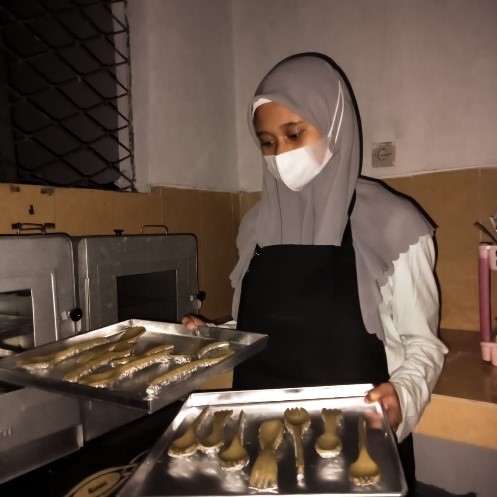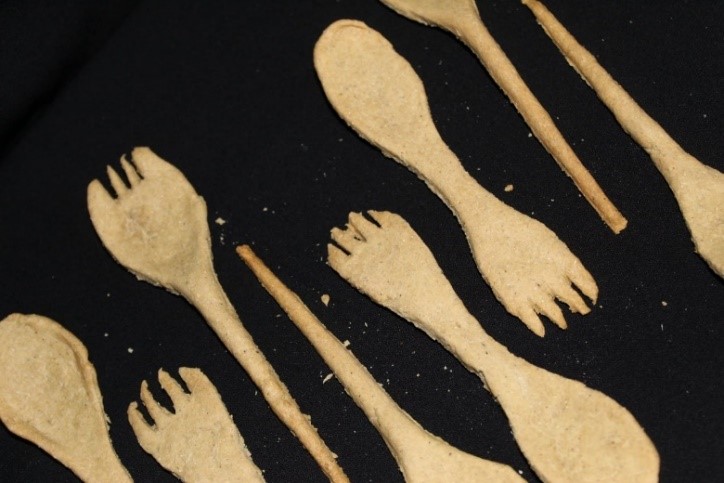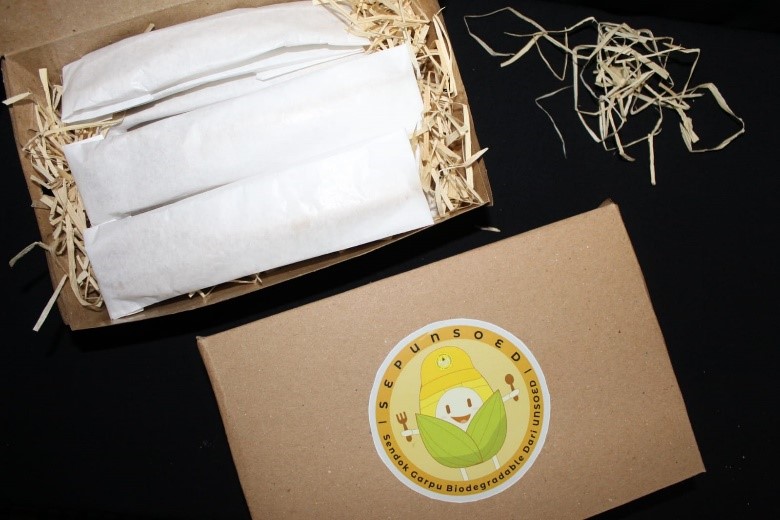UNSOED Students Use Corn Cobs as Cutlery
[unsoed.ac.id, Wed, 01/09/21] Banyumas Regency is the area with corn as the third highest commodity production compared to other carbohydrate sources. The availability of abundant corncob waste without any alternative utilization by the surrounding community encourages students from the Faculty of Agriculture, Universitas Jenderal Soedirman / Unsoed to create solutions that can increase the added value of corncob waste and minimize waste disposal in vain.
The solution offered by the team consisting of Fitri Nur Haerunnisa (Agrotechnology 2019), Isna Aulia Syahdiar (TEP 2019), Toibah (TEP 2019), Annisa Islamiati (Agrotechnology 2019), and Salma Alif Nabilah (TEP 2020), in the form of edible cutlery. The creation of this product is related to the increase in environmental pollution, especially plastic waste. The increasing use of single-use cutlery increases the amount of plastic waste in the Banyumas area. This is supported by the Covid-19 pandemic, which requires consumers not to use tableware repeatedly.
Fitri Nur Haerunnisa, as the head of the PKM Team, said that this product has a relatively high level of creativity because this cutlery is different from the others. This product is formulated by combining various formulations that the team has already observed. “This product is made from corn cobs waste which is ground into flour, then roasted to remove bacteria. Furthermore, these ingredients are mixed with other ingredients that are 100% safe for consumption,” she said.
Corn cobs waste is converted into biodegradable cutlery, which is named Sepunsoed (Sendok Garpu from Unsoed). Compared to other environmentally friendly products, the product's advantages are that it can be eaten immediately, does not need to be washed, is easy, and is practical. Sepunsoed's production is supported by PKM (Student Creativity Program) funding organized by the Directorate General of Learning and Student Affairs, Ministry of Research, Technology and Higher Education (KEMENRISTEK DIKTI) of the Republic of Indonesia in 2021 in the field of entrepreneurship. This activity could not be separated from the support and guidance from the accompanying lecturer, Dian Novitasari, S.TP., M.Sc. She hopes that this creative idea can continue after the program is finished.
Sepunsoed has been marketed massively through various types of e-commerce such as Shopee and Tokopedia and is also marketed through social media such as Instagram and WhatsApp. Sepunsoed is expected to reduce the amount of plastic waste, especially waste from disposable spoons and forks, increase the added value of corncob waste, and open up new business opportunities.
It is proven that this product has received a positive response from consumers, it is recorded that more than 300 pcs of cutlery have been sold since the first launch in early August. Moreover, according to a survey conducted by the team, the market potential of this product is tremendous. "Therefore, as a business continuity effort, we plan to register products to obtain a PIRT (Home Industry Food) permit so that the products can compete with the manufacturer's products, safety, and product quality is guaranteed. We are trying to work with food business owners to expand our reach,” said Fitri.



